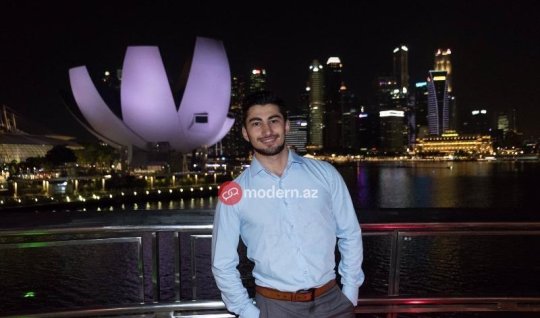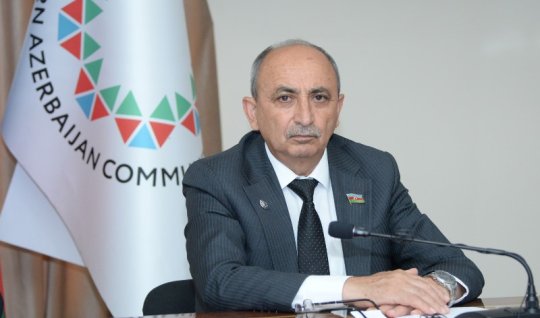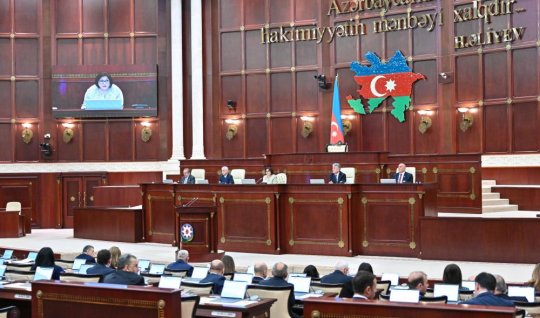A welcome message from the court in Azerbaijan to Armenia - believe in facts, not myths

The voices of the orphaned children, mothers, and elders murdered on the snowy night of Khojaly now echo in the hall of the Baku Military Court. This time there are no bayonets, “Grad” rockets, or burning houses. This time, behind them is the Azerbaijani state, and before them are the criminals who committed those horrific crimes.
In the open court proceedings in Baku, 15 former military-political figures of Armenian origin are being tried. For years, they were the pillars of the illegal regime established in Karabakh. Now they are accused of genocide, war crimes, terrorism, financing of terrorism, deportation of the population, violent seizure of power, and dozens of other serious charges.
According to court materials, the main figures accused are 15 people. The list includes Arayik Vladimiri Harutyunyan, the last “president” of the illegal regime and the main military-political figure during the 2020 war and 2023 anti-terror operations; Arkadi Arşaviri Qukasyan, “president” of the bloody phase of the 1990s; Bako Sahaki Sahakyan, “president” of the regime established in the occupied territories from 2007–2020; Davit Rubeni İşxanyan, “speaker of the fake parliament” and a politician who was part of that system for many years; Davit Klimi Babayan, “foreign minister” of the so-called regime and one of the ideologues of the occupation; Levon (Lyova) Mnatsakanyan, former “defense minister” and corps commander; as well as Vasili Beglaryan, Madat Babayan, Garik Martirosyan, Melikset Paşayan, Davit Allahverdiya, Erik Qazaryan, Gurgen Stepanyan, Levon Balayan, and others who are alleged to have directly participated in combat operations, missile strikes, shelling of civilians, torture, hostage-taking, and deportation.
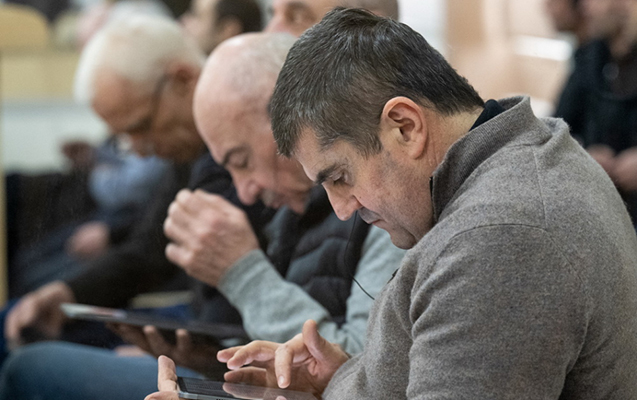
These 15 individuals are accused under Articles 100 (aggressive war), 103 (genocide), 105 (destruction), 107 (deportation and forced displacement), 109 (persecution), 113 (torture), 115–116 (violation of laws of war), 214–214-1 (terrorism and financing of terrorism), 278 (forcible seizure and retention of power) and dozens of other articles of the Criminal Code of the Republic of Azerbaijan.
In this regard, there is a separate case for Ruben Vardanyan. The Russian-born billionaire, former “state minister,” is being tried in a separate process on 42 episodes, including charges of financing terrorism and creating illegal armed groups.
The Khojaly genocide no longer merely signifies a bloody page in the nation's history textbooks. Today, it stands as the central crime in the indictment of those being tried in Baku.
According to official investigations, on the night of February 25-26, 1992, 613 Azerbaijanis were brutally murdered in Khojaly. Among them, 63 were children, 106 were women, and 70 were elderly. Hundreds of people were severely wounded, 1275 people were taken hostage, and the fate of dozens of residents remains unknown.
The official investigation conducted in Azerbaijan has established that this event constitutes genocide in accordance with the requirements of the Genocide Convention, meaning it was aimed at the systematic destruction of a specific national group, a part of the Azerbaijanis.
Today, in the Baku court, documents, video footage, and witness testimonies bring back the scenes of that night. A mother fleeing with her baby in her arms shot in the snow, the elderly taken hostage and humiliated, subjected to torture, beheaded and burned bodies, and so on…
Do not view these as mere emotional descriptions; these are facts recorded in investigation materials, reports of international organizations, and confirmed by numerous witness testimonies.
The proceedings in Baku also involve the inclusion of confessions made by the Armenian side into the court protocol.
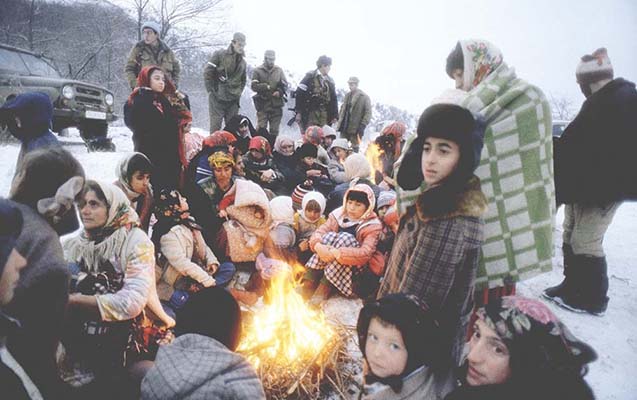
For example, Madat Babayan, testifying in court as a member of the armed groups that fought in Khojaly and surrounding villages, stated in his testimony to the investigation that armed groups against Azerbaijanis began to form in 1988, that he participated in attacks on Azerbaijani-populated settlements in Aghdara and surrounding villages between 1990 and 1992, and that on February 24, 1992, commander Arkadi Şirinyan appeared before them and gave the order to attack Khojaly on the night of February 25-26 and “commit a mass massacre,” and that he was part of the groups formed in the direction of Khojaly that night.
Other defendants testifying in the same case, Garik Martirosyan, Gurgen Stepanyan, Melikset Paşayan, Davit Allahverdiya, Vasili Beqlaryan, and Erik Qazaryan, confessed to participating in combat operations against Azerbaijan on the front line and in the occupied territories in Aghdara, Fuzuli, Khojavand, and other districts in various years.
These testimonies clearly demonstrate one thing. The crimes committed in Khojaly and other villages were not spontaneous episodes but rather part of a military-political strategy planned from top to bottom and executed with precise instructions.
Yes, Karabakh was liberated by military means, but if justice is not restored on a legal plane, the war would not truly be considered over.
In 2020, the 44-day Patriotic War largely restored Azerbaijan's territorial integrity. The anti-terror measures in September 2023 cleared the last remnants of separatism. Now, in the courtroom in Baku, the legal evaluation of crimes against humanity is underway.
This trial is the practical fulfillment of the promise made to the victims of Khojaly. For years, it was said that this blood would not remain unavenged. Now, specific names and specific punishments for those bloody acts are being laid on the table.
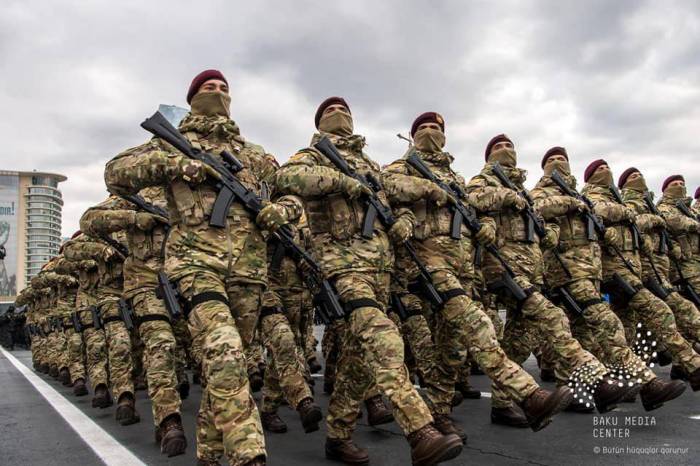
This is the continuation of the Azerbaijani Army's victory on the battlefield, now on a legal plane.
Victory also means exposing the criminal system, holding it accountable, and ensuring security for the future.
If the perpetrators of genocide, ethnic cleansing, terror, and torture go unpunished today, they may repeat these acts tomorrow. In fact, with this step, official Baku also ensures the obligations of international law.
And today, Armenians must know that this trial is not against the Armenian people. This trial is against a criminal ideology and the specific individuals who implemented it. They should no longer listen to the fairy tales told to them for decades. They were told, “No Azerbaijanis remained there,” “What is said about Khojaly is propaganda,” “We only defended ourselves,” and so on.
Today, in the Baku court, confessions of Armenian servicemen are being heard. They speak of plans to attack Khojaly, raids on peaceful villages, and cities struck by rockets.
Therefore, this trial is an opportunity for those who believe in fairy tales. Accept Khojaly, Meşəli, Qaradağlı, Gəncə, and the missile strikes in Bərdə as facts. Overturn the comfort of “we did nothing” in your society and tell future generations, “let's not do this again.”
This trial is also a clear message to the revanchists who say “we will return Karabakh again” and “one day we will come back” on social networks and in certain circles today. Claims made with weapons, terror, ethnic hatred, and every such attempt result in a courtroom, a severe indictment, and life imprisonment.
Therefore, everyone who takes up arms today and dreams of a new war must know that every act committed will one day be presented as evidence. It is a mistake to interpret this as a threat; it is a clear depiction of legal reality. There is no statute of limitations for war crimes; genocide and crimes against humanity never expire.
Yes, this is also Azerbaijan's message to the world. We seek justice, not revenge.
The Khojaly genocide and the Karabakh wars are not only a bitter history for us but also the identity memory of modern Azerbaijan. This memory is now being transformed into concrete documents consisting of law, court judgments, and precedents.
This trial in Baku is a process that can determine the future of the entire region. For Azerbaijan, it is the fulfillment of a debt to the souls of Khojaly and the thousands of civilians murdered in Karabakh, and the restoration of justice.
For Armenian society, it is an opportunity to honestly look at their history, to accept facts rather than myths.
For revanchists, it is a harsh warning that the era of “changing maps with weapons” is over.
Finally, for the international community, it is a precedent demonstrating that genocide and war crimes can be brought to court even decades later.
And the main sentence for history has already been formed. “Those who committed the Khojaly genocide were brought before the court in Baku.”
Within this sentence lies both the pain of Azerbaijanis and a very strong message for those who might dare to commit such crimes again.
Elnur ƏMİROV
-
00:40, Bu günThis country requested assistance from the USA
-
00:14, Bu günFrom Hamas's underground bunker New IMAGES
-
20 November 2025, 22:20A fire broke out at COP30
-
20 November 2025, 20:233+3 this time in Baku and Yerevan - From Moscow REACTION
-
20 November 2025, 18:14“Azerbaijan and Armenia can strengthen each other”
-
20 November 2025, 18:08From Erdoğan regarding the population WARNING
-
20 November 2025, 17:47A new alliance in Central Asia WILL BE CREATED
-
20 November 2025, 17:22Armenians tomorrow to Baku ARE COMING
-
20 November 2025, 15:55A favorable peace plan is being prepared for Ukraine - Rubio confirmed
-
20 November 2025, 15:37Two individuals are coordinating the opening of the Zangezur corridor in Armenia
-
20 November 2025, 15:04Pashinyan goes to Kazakhstan today
-
20 November 2025, 15:01In Armenia, these women are called to military service
-
20 November 2025, 14:56Israel's Foreign Minister to visit Azerbaijan
-
20 November 2025, 13:33Threat to our embassy in Ukraine continues
-
20 November 2025, 12:39Executive heads of Baku districts: Why do officials hide their biographies?
-
20 November 2025, 11:36Decision made - COP31 will be held in this country
-
20 November 2025, 10:44Relations with Turkey and Azerbaijan are very important for Armenia - Mirzoyan
-
20 November 2025, 10:24A monument should be erected in connection with the Qarakənd tragedy! - PROPOSAL
-
20 November 2025, 09:48Moscow is ready for talks with Ukraine - Peskov
-
20 November 2025, 09:36Turkish plane in just 5 seconds shattered into pieces
-
20 November 2025, 09:00Trump's special representative resigns
-
19 November 2025, 23:38What did Putin say to Trump about Azerbaijan? - VIDEO
-
19 November 2025, 22:52USA demands Ukraine's surrender – SHOCK PLAN
-
19 November 2025, 21:59What is happening in the Kremlin?
-
19 November 2025, 21:41The two greatest figures in history at the White House
-
19 November 2025, 20:36Nothing happened to Putin
-
19 November 2025, 20:29We trust Turkish diplomacy - ZELENSKY
-
19 November 2025, 20:13Has the US sent proposals to Russia?
-
19 November 2025, 19:27Three days of mourning declared in Ukraine
-
19 November 2025, 17:56Erdoğan-Zelensky meeting HAS STARTED





































